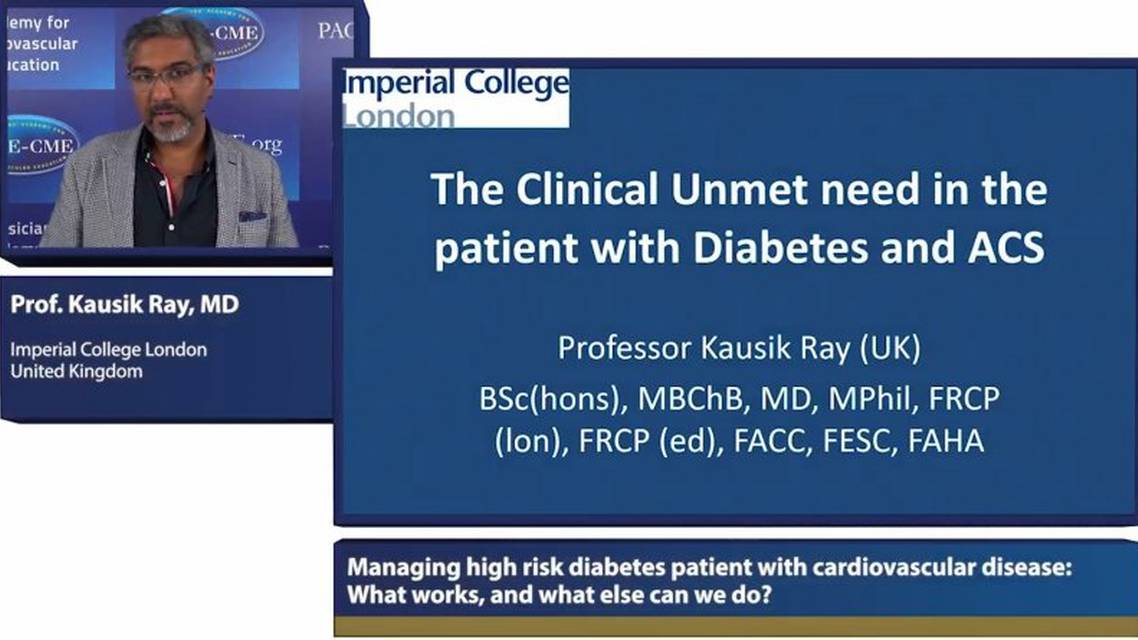Media formats available:
Recommended
- Managing Diabetes & CVD: Is epigenetics a new way forward?Insights from the first trials in epigenetics in human: What is the way forward?
- Managing Diabetes & CVD: Is epigenetics a new way forward?Promise of epigenetic modulation as a target in atherosclerotic patients






